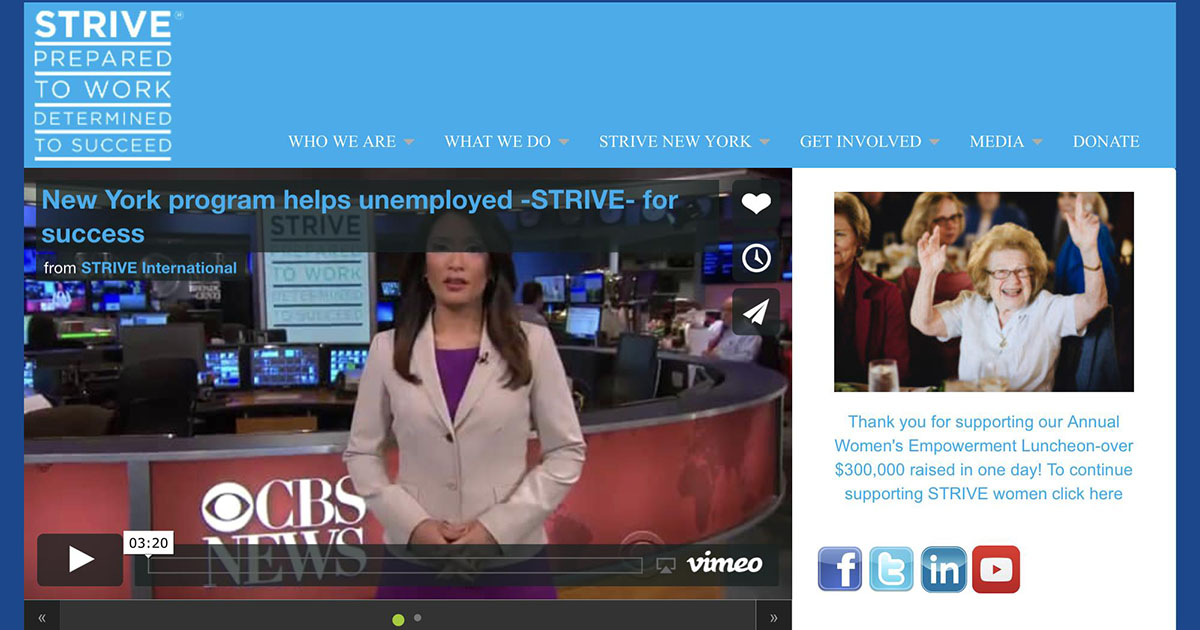STRIVE Future Leaders Implementation Study

Overview
Young people with juvenile justice involvement face many challenges, which may include a lack of education and employment skills, antisocial attitudes and values, unstable housing, and much more. These challenges make it difficult for them to pursue educational pursuits or enter the workforce and become productive citizens. Too often, these challenges continue into adulthood and become overwhelming barriers to success in the workplace and beyond.
STRIVE International is working to help young people who become involved in the juvenile justice system to improve their educational and employment outcomes. STRIVE has operated workforce development programs for adults since the 1980s. As the organization turned its attention to serving young people, in 2012, it was soon apparent that it would need to develop a different approach from that of its adult curriculum. With support from the Youth Development Institute, STRIVE has taken an iterative approach to developing its program model, employing socioemotional learning principles to provide young people with an opportunity for self-discovery, personal assessment, and goal setting. The program, now known as Future Leaders, provides workforce development, educational support, mentoring, occupational training for high-demand industries, work experience, service learning, leadership training, legal services, and case management.
Additional Project Details
Agenda, Scope, and Goals
In 2015, MDRC partnered with STRIVE as the organization worked to develop a manual for Future Leaders, the second iteration of its youth program. In 2016, STRIVE launched the Future Leaders program at six STRIVE affiliate locations, with funding from the Employment and Training Administration of the U.S. Department of Labor. With this funding, the Future Leaders program is serving young people from 14 to 24 years old who live in high-poverty, high-crime neighborhoods and who have been involved in the juvenile justice system (not the adult system).
MDRC is continuing the partnership with STRIVE by studying the implementation of the program by six affiliates and the fidelity of each program to the Future Leaders model.
Design, Sites, and Data Sources
MDRC’s study of the Future Leaders program is exploring how the model is being implemented compared with how it is intended to operate, whether implementation varies across program sites, and what challenges the program faces. In addition, MDRC will assess the feasibility of conducting a rigorous evaluation of the program’s effects.
The primary source of data for both study components consists of visits to each program site and interviews with staff members at each affiliate. The study also includes a review of the program’s management information system to better understand the services that program participants engage in.
Six STRIVE affiliates are involved in the study, located in Boston; New Haven, Connecticut; Philadelphia; Yonkers, New York; San Diego; and Chicago.






